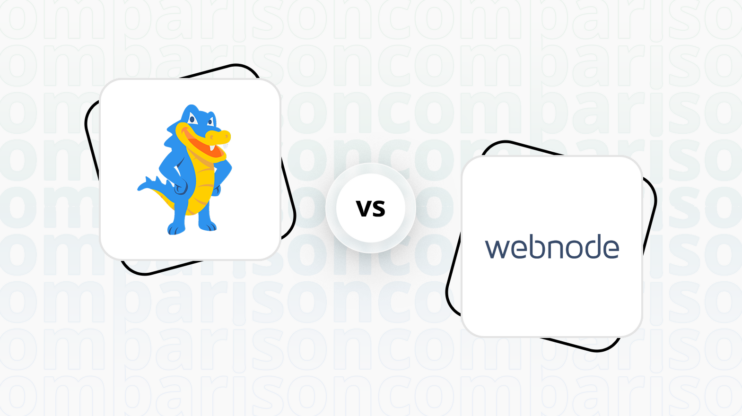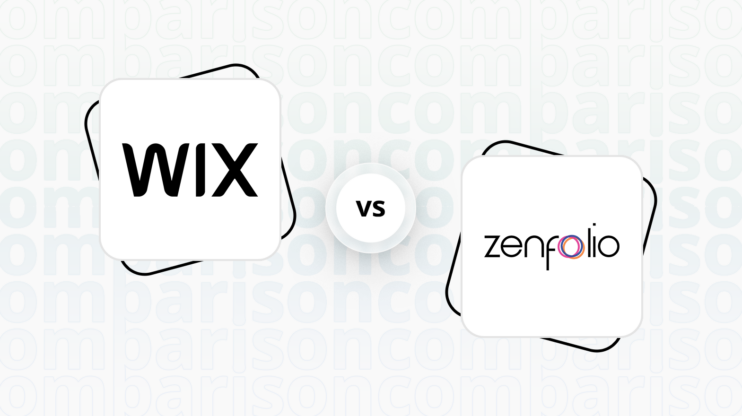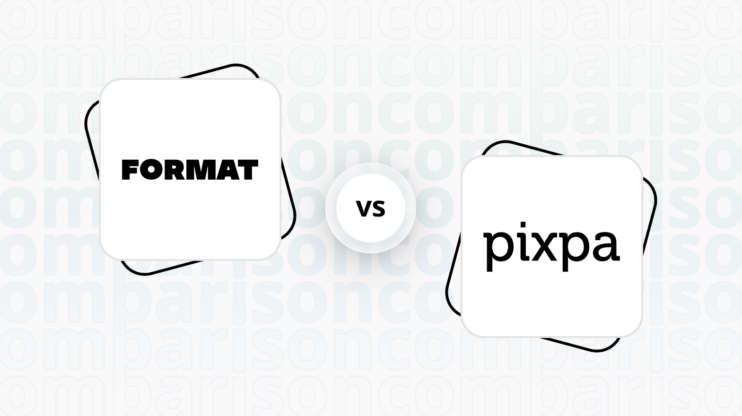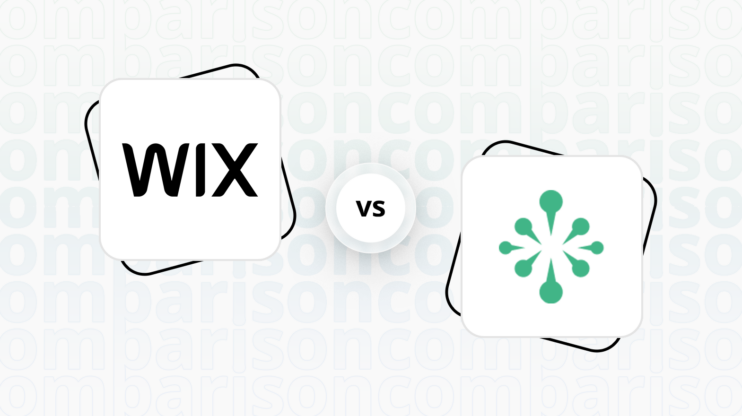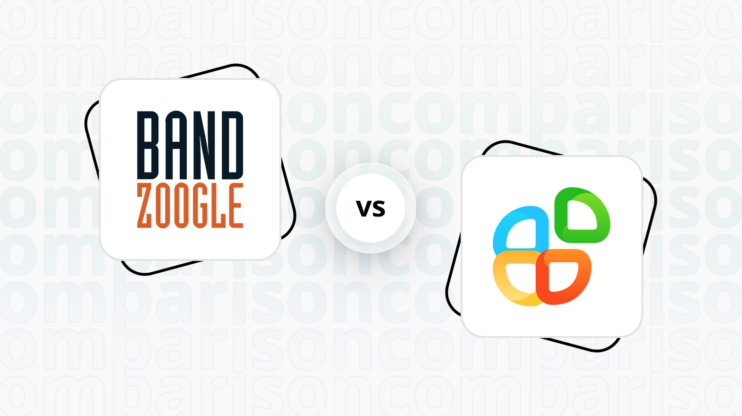Final verdict
Elementor and Instapage both offer unique strengths, but they cater to different needs and user bases.
-
Elementor (Overall Grade: 7.4/10)
is a versatile website builder plugin for WordPress, known for its extensive design functionalities, ease of use, and robust ecommerce capabilities through WooCommerce integration. It excels in providing a wide range of templates, responsive design, and comprehensive customization options, making it suitable for both beginners and professional web designers. When comparing Elementor vs Instapage, Elementor stands out for its flexibility, extensive integrations, and strong security measures, making it a preferred choice for users looking to build and manage diverse types of websites. -
Instapage (Overall Grade: 6.6/10)
, on the other hand, is a specialized landing page platform focused on improving advertising conversion through personalization and optimization. It offers a user-friendly interface, AI content generation, and detailed analytics, making it ideal for creating high-performing landing pages. Considering Elementor vs Instapage, Instapage is particularly strong in marketing features and customer support, providing tools for targeted messaging and seamless ad-to-landing-page experiences. However, it lacks the extensive design and ecommerce capabilities found in Elementor.

|

|
|
|---|---|---|
|
Design functionalities & templates |
9.2 |
8.0 |
|
Ease of use |
8.8 |
8.5 |
|
Ecommerce |
7.6 |
4.2 |
|
Website Editors |
8.5 |
7.5 |
|
Product testing options |
5.6 |
6.1 |
|
Price |
8.0 |
7.0 |
|
Hosting quality |
7.8 |
6.0 |
|
Website speed optimization |
6.7 |
6.2 |
|
Plugins and integrations |
7.6 |
6.8 |
|
Marketing features |
7.8 |
7.7 |
|
Customer support |
7.2 |
7.6 |
|
Security |
9.1 |
8.4 |
|
AI capabilities |
7.4 |
6.0 |
|
User Management |
8.8 |
7.3 |
Best for ecommerce
 7.6
7.6
 4.2
4.2
Verdict
: Elementor is better suited for comprehensive ecommerce needs, while Instapage excels in landing page optimization with limited ecommerce capabilities.
-
Elementor
: With a score of 7.6, Elementor integrates seamlessly with WooCommerce, offering a robust ecommerce solution. It provides customizable product pages, a variety of ecommerce-specific widgets, and responsive design templates. This makes Elementor a versatile choice for those looking to build a full-fledged online store within the WordPress ecosystem. -
Instapage
: Scoring 4.2, Instapage is primarily a landing page builder with limited ecommerce functionalities. It supports integration with platforms like Shopify and offers basic payment gateway options. Instapage is ideal for businesses focused on optimizing landing pages for conversions rather than managing a comprehensive online store.
Best for informational & business websites
 8.9
8.9
 7.9
7.9
Verdict
: Elementor is the superior choice for creating informational and business websites, offering greater flexibility and a higher score in this category compared to Instapage.
-
Elementor
: Scoring 8.9, Elementor excels in providing a versatile and user-friendly platform for building informational and business websites. Its drag-and-drop interface, extensive range of widgets, and responsive design capabilities make it ideal for both beginners and professional web designers. Elementor’s integration with various WordPress themes and plugins further enhances its functionality, making it a robust choice for creating detailed and visually appealing websites. -
Instapage
: With a score of 7.9, Instapage is primarily focused on creating high-converting landing pages. While it offers a range of tools for personalization, optimization, and testing, it may not provide the same level of flexibility and customization as Elementor for general informational and business websites. Instapage is best suited for businesses looking to improve their advertising conversion rates through targeted landing pages.
Detailed comparison
Design functionalities & templates
Design FunctionalitiesRepresents how well each platform allows for creative design and customization of websites.Score Components:
- Template Variety (30%): Range and quality of design templates.
- Customization (30%): Flexibility and options for design alterations.
- User Interface (20%): Ease and intuitiveness of the design process.
- Responsiveness (10%): Adaptability to different devices and screen sizes.
- Innovation (10%): Unique design features and tools.
 9.2
9.2
 8.0
8.0
🏆
Winner: Elementor.
If you’re looking for a platform that offers more creative control and a wide array of design features, Elementor is the preferred choice.
Elementor offers an extensive range of templates and designs, with over 100 responsive website kits covering various categories like business, creative, education, and more, directly available through Elementor’s platform. Additional sources like Envato Elements, Template Monster, and others provide a wider selection, including free and premium options, catering to diverse web design needs.
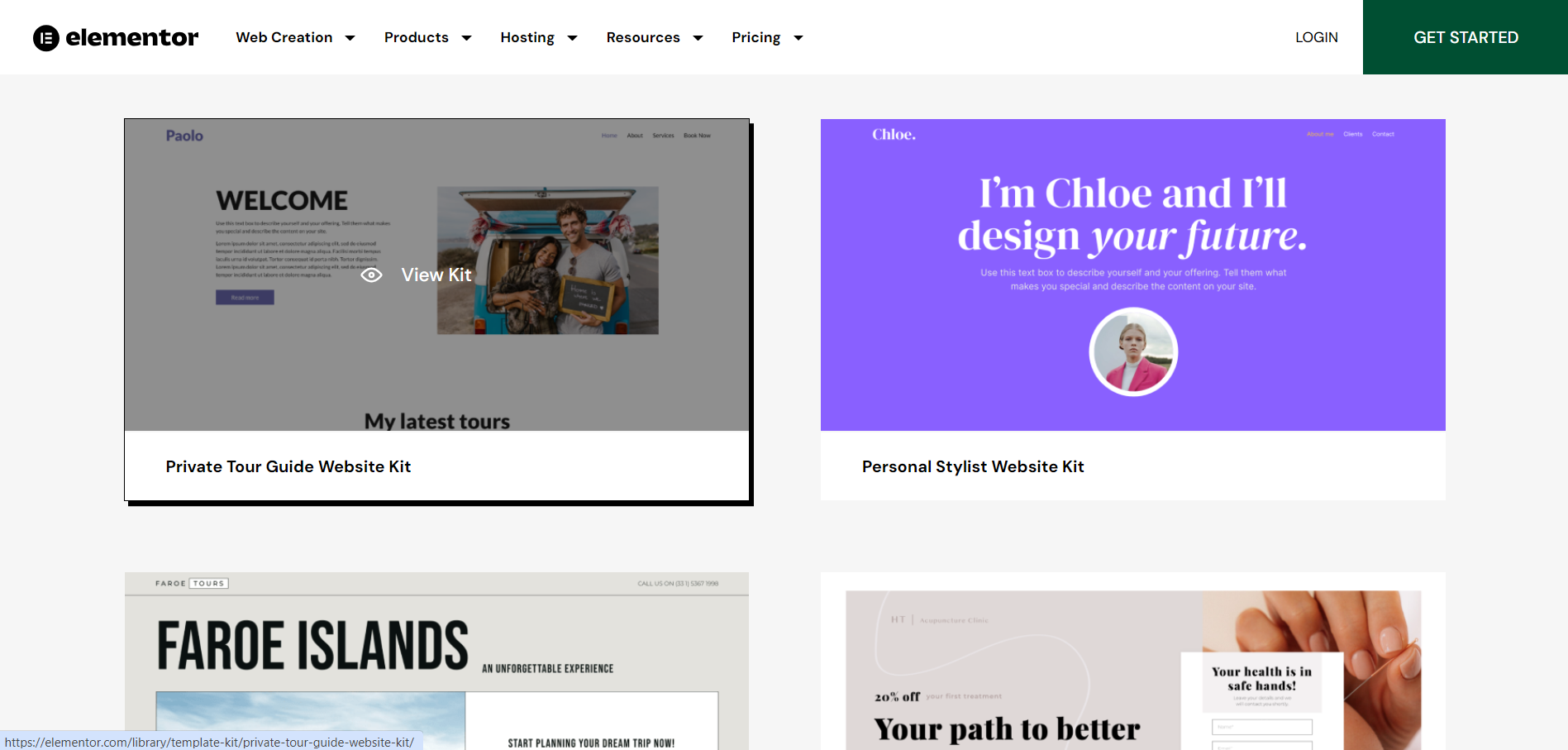
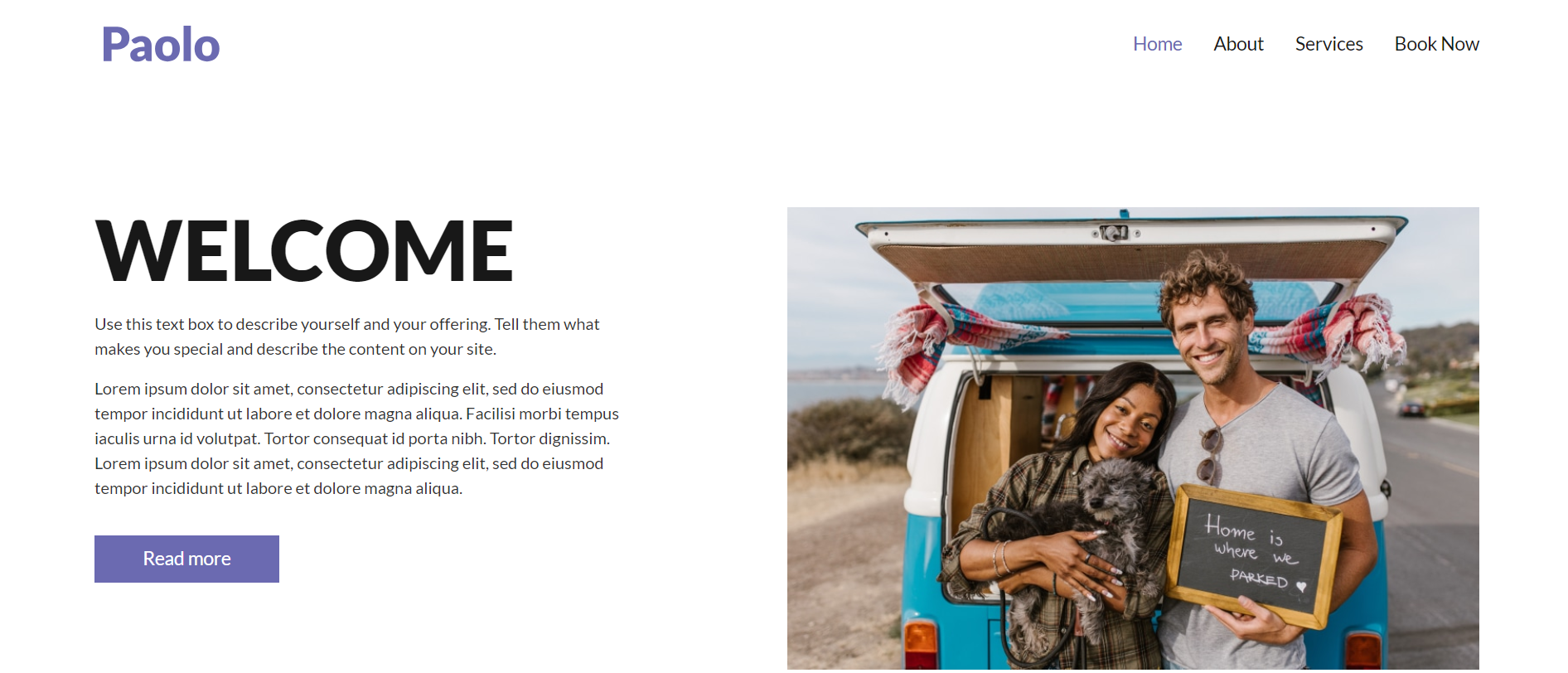
Compared to Elementor, Instapage provides an extensive collection of 100+ design templates for website building, business-specific templates. These templates are tailored to support small teams and businesses in executing their marketing campaigns efficiently, including features for marketing automation, CRM, and analytics integrations.
Get a head start on website creation with AI
Create a custom website tailored to your business needs 10X faster with 10Web AI Website Builder!
Ease of use
Ease of useReflects the platform’s overall user-friendliness.Score
Components:
- Learning curve (40%): Quickness and ease of getting started.
- Interface design (30%): Simplicity and intuitiveness of layout.
- User guidance (20%): Quality of tutorials and support.
- Flexibility (10%): Adaptability to various user skills.
 8.8
8.8
 8.5
8.5
🏆 Winner: Elementor
. Scoring 8.8, Elementor is known for its user-friendly interface and drag-and-drop functionality, making it easy for both beginners and professionals to create websites. Instapage, with a score of 8.5, also offers an intuitive platform but is more focused on creating and optimizing landing pages.
Learning Resources
🏆 Winner: Tie
. Both Elementor and Instapage offer extensive learning resources, making it easy for users to learn and adapt to their platforms. Elementor provides a wide range of resources through its Elementor Academy, while Instapage offers a comprehensive set of resources including blogs, webinars, videos, and more.
For ecommerce
EcommerceMeasures the platform’s effectiveness in supporting online business activities.Score Components:
- Ecommerce themes and templates (20%): Variety and design of templates.
- Product management (25%): Ease of managing and organizing products.
- Payment options (25%): Variety and convenience of payment methods.
- Ecommerce features (20%): Features for managing an ecommerce store.
- Integration (10%): Compatibility with external e-commerce tools and services.
 7.6
7.6
 4.2
4.2
Elementor and Instapage offer different ecommerce capabilities. Elementor, through its integration with WooCommerce, provides a robust ecommerce solution with customizable product pages, a variety of ecommerce-specific widgets, and responsive design templates for building online stores. On the other hand, Instapage, primarily a landing page builder, supports integration with ecommerce platforms like Shopify.

|

|
|
|---|---|---|
|
Ecommerce themes and templates |
7.8 |
0.0 |
|
Product page customization |
8.4 |
0.0 |
|
Payment processing and commissions |
7.5 |
5.0 |
|
POS capabilities |
5.5 |
0.0 |
|
Payment gateways |
7.0 |
6.0 |
|
Product numbers |
7.0 |
0.0 |
|
Additional ecommerce features |
8.0 |
4.0 |
Elementor ecommerce features:
- WooCommerce Integration
- Customizable Product Pages
- Ecommerce Widgets
- Product Categories and Filters
- Shopping Cart Customization
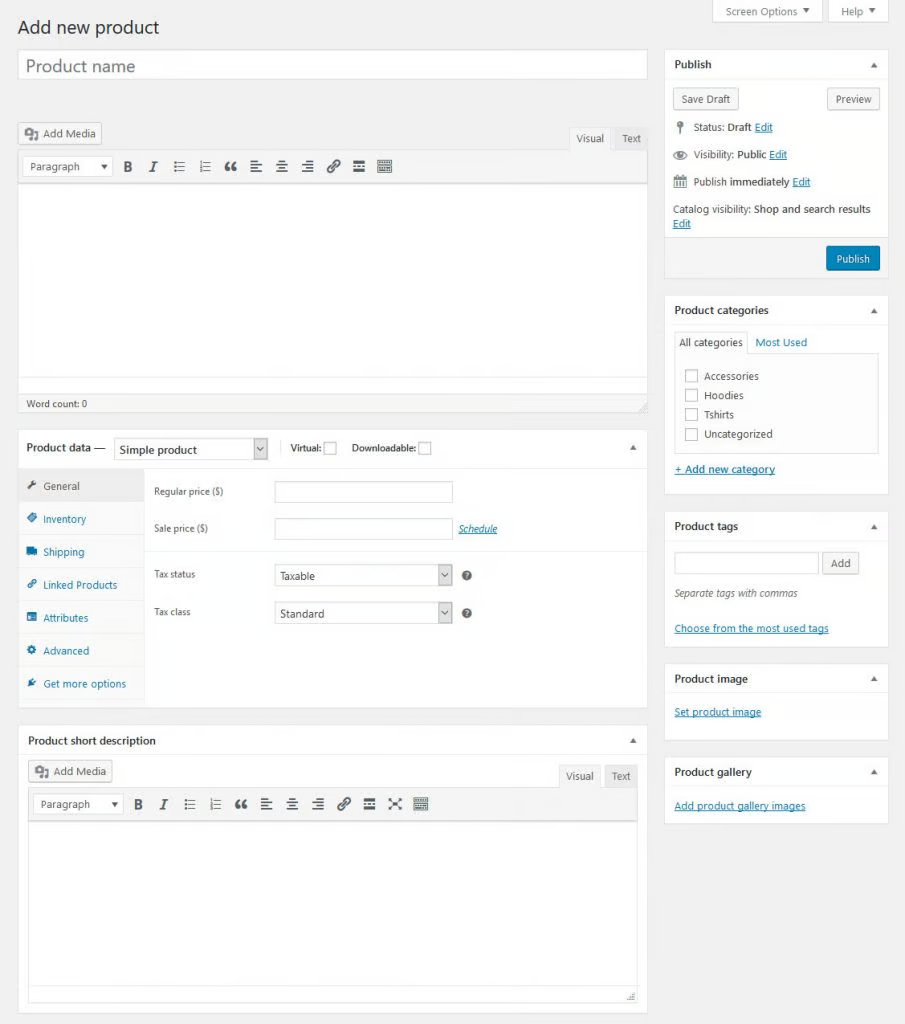
Instapage ecommerce features:
- Shopify integration
- Payment gateways such as Stripe and Paypal
Ecommerce themes & templates
Elementor offers a diverse range of ecommerce-specific templates suitable for various online stores, from free options for budget-conscious users to premium templates with advanced customization features. These templates are designed to be mobile-responsive and SEO-friendly, ensuring optimal performance across devices and search engines. However, Instapage does not offer ecommerce specific templates.
Product page customization
Elementor offers extensive customization options for WooCommerce product pages, including custom layouts, WooCommerce widgets for various product elements, and options for styling product galleries and ‘Add to Cart’ buttons. It allows for the display and customization of product variants, although the number of variants is technically limited by WooCommerce, not Elementor. Custom CSS and mobile responsiveness ensure that product pages look good on all devices, enhancing the shopping experience. The actual handling of product details and variants is managed by WooCommerce, with Elementor providing the tools for visual customization. Instapage, however, does not offer product page customization capabilities.
Payment processing
When it comes to payment processing, Elementor supports several payment gateways, notably through plugins and integrations, with Stripe and PayPal being prominent options for simple and widespread use. These gateways charge their own transaction fees, typically around 2.9% + $0.30 per transaction, but Elementor itself does not impose additional fees for transactions. Instapage supports payment gateway integration, notably through external systems and third-party services like Commence Payments for Stripe, facilitating various payment options such as Apple Pay, Google Pay, and card payments. The platform itself does not directly charge commissions for transactions, but payment gateways may have their own fees.
Website Editors
Website EditorsEvaluates the platforms’ website building and editing capabilities.Score Components:
- Customization tools (40%): Range and power of editing features.
- Editor usability (30%): User experience within the editor.
- Design flexibility (20%): Freedom in layout and design changes.
- Update and maintenance ease (10%): Simplicity of updating and maintaining the site.
 8.5
8.5
 7.5
7.5
🏆
Winner: Elementor
. Elementor, with a score of 8.5, offers a drag-and-drop interface that makes it easy to customize layouts, add content, and style websites visually in real-time. It provides a wide array of widgets and templates, allowing users to design complex elements such as sliders, forms, and animated headlines. Elementor also supports responsive design, ensuring websites look great on all devices, and integrates with a variety of marketing tools.
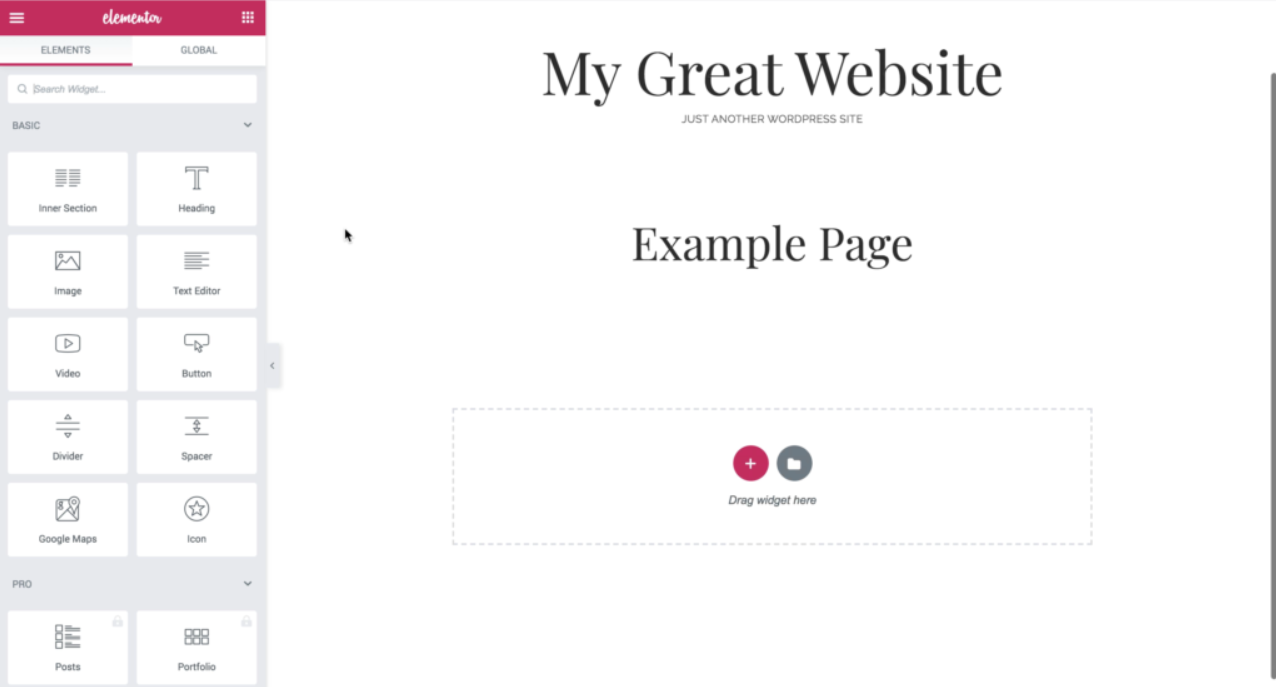
Instapage, scoring 7.5, is a comprehensive website builder focused on creating and optimizing landing pages for various marketing campaigns. It offers a drag-and-drop editor, AI content generation, detailed analytics, and extensive customization through custom code editing. However, it may lack some of the extensive customization and content management capabilities found in Elementor.
Mobile editor/app
 0
0
 0
0
🏆
Winner: None
. Both Elementor and Instapage do not offer a dedicated mobile editor. This means that users cannot edit their websites or landing pages directly from a mobile device. This could be a limitation for users who prefer to make quick edits or updates on the go. Therefore, both platforms tie in this category as neither provides a mobile editing solution.
Product testing options
Product Testing OptionsAssesses the options for trying out platform features before commitment.Score Components:
- Trial quality (40%): Extent and usefulness of the trial or free version.
- Feature accessibility (30%): How many features are available to test.
- Trial duration (20%): Length of the trial period.
- Ease of transition (10%): Smoothness of moving from trial to paid plans.
 5.6
5.6
 6.1
6.1
Overall Result
:
Instapage wins
. Instapage scores 6.1, slightly higher than Elementor’s 5.6. Instapage offers a 14-day free trial, during which users can test all premium features. However, users are required to fill in their payment information, and if they don’t cancel by the end of the trial period, they may be charged automatically. Instapage also offers a 24-hour money-back guarantee. On the other hand, Elementor offers a free version but only for self-hosted WordPress.org. It doesn’t offer a trial version, but it allows users to test all premium features during the refundable period. Elementor also offers a 30-day money-back guarantee.

|

|
|
|---|---|---|
|
Free Plan |
Yes, but only for self-hosted WordPress.org | No |
|
Trial Duration |
No | 14 days (users are required to fill in their payment information) |
|
Testing Premium Features |
During the refundable period | During the free trial |
|
Money Back Guarantee |
30-day money back guarantee | 24-hour money back guarantee |
Price
PriceLooks at the cost-effectiveness and value for money of each platform.Score Components:
- Plan value (40%): What each pricing tier offers.
- Transparency and clarity (30%): Clearness of pricing structures.
- Flexibility of plans (20%): Range of options to suit different budgets.
- Hidden costs (10%): Additional expenses not included in the plan.
 8.0
8.0
 7.0
7.0
Elementor offers a range of plans with different features and prices, while Instapage has a high-priced plan and a customized enterprise plan.

|

|
|
|---|---|---|
|
$0-$10 |
Basic ($9.99/month): 1 website, with 10GB SSD storage, 25k monthly visitors, 30GB monthly bandwidth, daily auto backups stored for 14 days, Cloudflare CDN, and integrated caching tool. Value for Price: 6.5 |
No offering at this amount. |
|
$10-$20 |
Business ($19.99/month): 1 website, with 20GB SSD storage, 50k monthly visitors, 50GB monthly bandwidth, daily auto backups stored for 30 days, Cloudflare CDN, integrated caching tool and access to staging environment. Value for Price: 7.5 |
No offering at this amount. |
|
$20-$30 |
Grow ($22.99/month): 3 websites, with 30GB SSD storage, 75k monthly visitors, 75GB monthly bandwidth, daily auto backups stored for 30 days, Cloudflare CDN, integrated caching tool, access to staging environment and site cloning. Value for Price: 8.5 |
No offering at this amount. |
|
$40-$50 |
Scale ($49.99/month): 10 websites, with 40GB SSD storage, 100k monthly visitors, 100GB monthly bandwidth, daily auto backups stored for 30 days, Cloudflare CDN, integrated caching tool, access to staging environment and site cloning. Value for Price: 9.0 |
No offering at this amount. |
|
$200+ |
No offering at this amount. |
BUILD ($299/month): Optimize conversions with experimentation and lead generation. Includes #1 Landing page builder, No Conversion Limits, Server-Side A/B Testing, AI Content, Unlimited Triggered Popups, Thor Render Engine, Dynamic Text Replacement, SSL Encryption, GDPR Compliance, Google SSO, Zapier, HubSpot, Salesforce, Marketo Integration, Multi-Step Forms, Invisible reCAPTCHA, and more. Value for Price: 7.5 |
location. As a result in rare cases the prices displayed here can differ from the ones you see on their
websites.
Hosting quality
Hosting
qualityExamines the reliability and performance of the hosting solutions.Score Components:
- Uptime (40%): Consistency and reliability of website availability.
- Speed (30%): Loading times and performance.
- Bandwidth and storage (20%): Sufficiency of resources provided.
- Data centers (10%): Quality and distribution of hosting infrastructure.
 7.8
7.8
 6.0
6.0
🏆
Winner: Elementor
. Elementor offers Google Cloud powered hosting included in all their plans, with 10-40GB SSD storage, and daily auto backups stored from 14 to 30 days depending on the plan. It also has a 99.9% uptime guarantee and a data center in Belgium. On the other hand, Instapage also offers cloud hosting with a 99.9% uptime guarantee, but does not disclose the locations of its data centers.

|

|
|
|---|---|---|
|
Do they offer hosting? |
Yes, included in all their plans |
Yes |
|
Data Centers: |
1 data center in Belgium |
Instapage does not disclose the locations of its data centers |
|
Type of hosting: |
Managed WordPress Hosting |
Cloud Hosting |
|
Uptime: |
99.9% |
99.9% |
|
Uptime Guarantee: |
Yes, 99.9% |
Yes, 99.9% |
Website Speed Optimization
Website Speed OptimizationEvaluates optimization of website loading timesScore Components:
- PageSpeed Score (30%): Google’s score indicating performance optimization.
- Loading Time (30%): The average time until a website is fully interactive.
- Mobile Optimization (15%): Optimization effectiveness for mobile devices.
- Resource Optimization (15%): Optimizing images, scripts, and other heavy resources.
- CDN Usage (10%): Use of CDN to enhance speed across geolocations.
 6.7
6.7
 6.2
6.2
🏆 Winner: Elementor
Both Elementor and Instapage prioritize website performance and page speed, but Elementor has a slight edge due to its comprehensive speed optimization strategies.

|

|
|
|---|---|---|
|
Focus |
Website performance and page speed |
Website performance and page speed |
|
Performance Tools |
Google Lighthouse, PageSpeed Insights |
Google PageSpeed Insights |
|
Key Strategies |
Lazy Loading, Code Minification, Caching, CDN |
Responsive design, Image optimization, Caching |
|
Load Times |
Varies depending on optimization and website complexity |
Varies depending on optimization |
|
Page Speed Scores Range |
Varies depending on optimization and website complexity |
Varies depending on optimization |
|
Core Web Vitals Improvement |
No information disclosed |
No information provided |
Elementor, a popular website builder plugin for WordPress, prioritizes website performance and page speed. It employs various strategies for speed optimization, including lazy loading, code minification, caching, and content delivery networks (CDN). However, the load times and PageSpeed scores can vary depending on the level of optimization and the complexity of the website. Unfortunately, Elementor does not disclose any information about its Core Web Vitals improvements.
On the other hand, Instapage, a comprehensive landing page platform, also focuses on website performance and page speed. It uses responsive design, image optimization, and caching as its key strategies for speed optimization. Similar to Elementor, the load times and PageSpeed scores of Instapage can vary depending on the level of optimization. Instapage also does not provide any information on their Core Web Vitals improvements.
Get a head start on website creation with AI
Create a custom website tailored to your business needs 10X faster with 10Web AI Website Builder!
Plugins and integrations
Plugins and integrationsMeasures the range and effectiveness of additional plugins and integrations.Score Components:
- Variety of options (40%): Range of available add-ons.
- Integration smoothness (30%): Ease of integrating plugins into the site.
- Quality of plugins (20%): Functionality and reliability of the options.
- Custom integration capabilities (10%): Support for custom or third-party integrations.
 7.6
7.6
 6.8
6.8
🏆 Winner: Elementor.
Elementor scores 7.6, offering a wide range of both free and premium add-ons to enhance website building. It integrates with a broad range of tools, enhancing its functionality for marketing, CRM, and social media needs. Instapage, with a score of 6.8, supports over 40 integrations with third-party platforms, including major CRM, email marketing, analytics, and advertising tools. However, Elementor’s extensive range of add-ons and integrations gives it the edge.
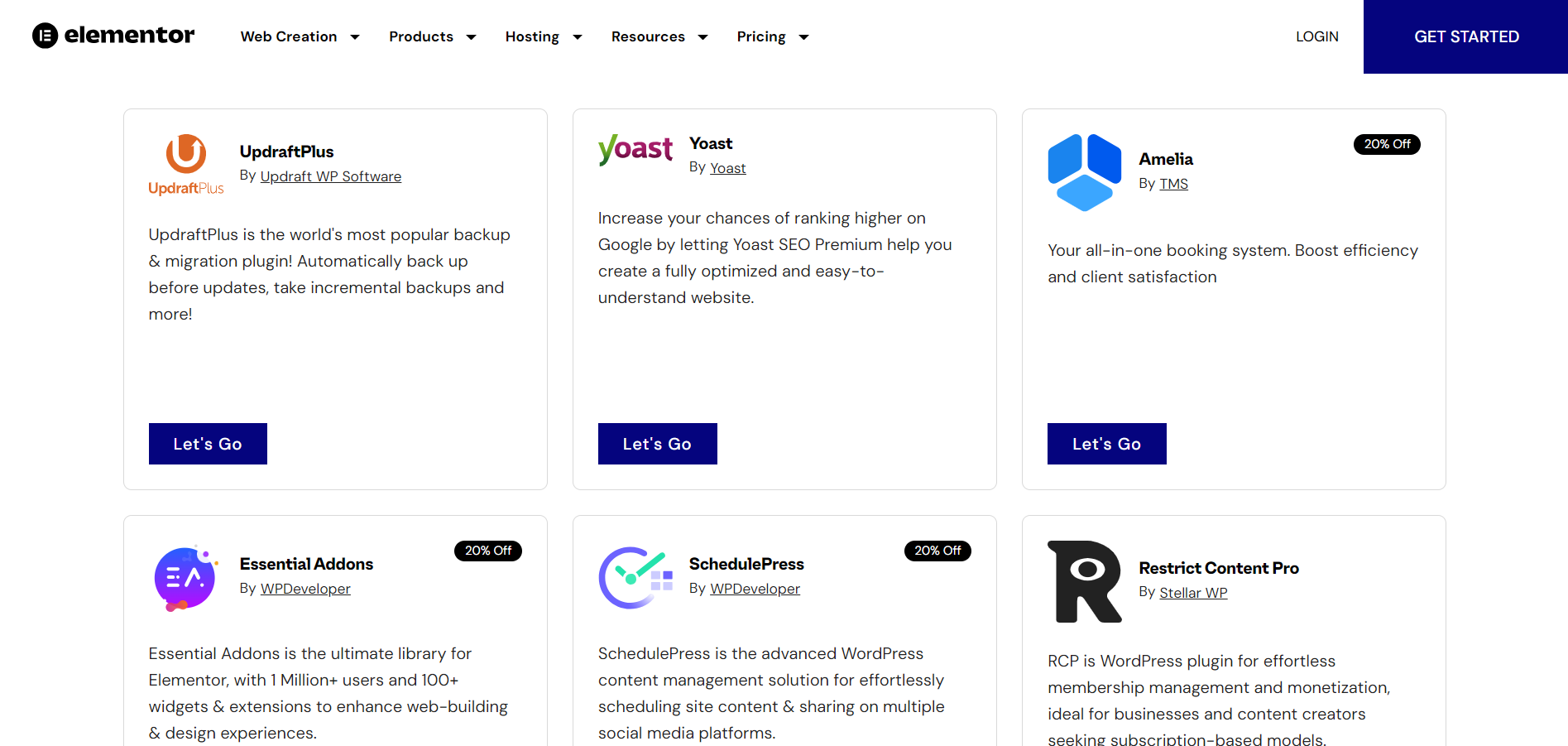
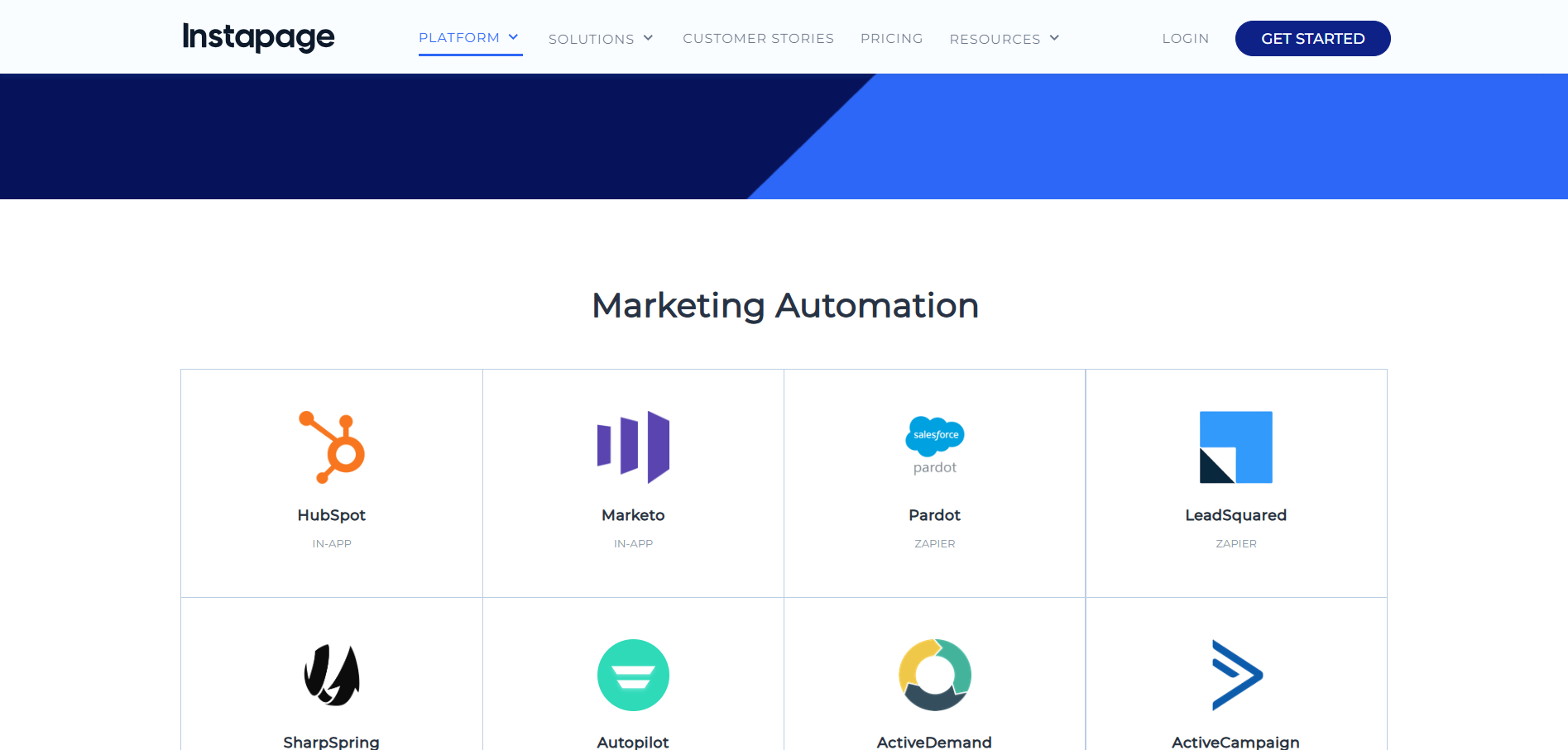
Marketing Features
Design FunctionalitiesRepresents how well each platform allows for creative design and customization of websites.Score Components:
- Template Variety (30%): Range and quality of design templates.
- Customization (30%): Flexibility and options for design alterations.
- User Interface (20%): Ease and intuitiveness of the design process.
- Responsiveness (10%): Adaptability to different devices and screen sizes.
- Innovation (10%): Unique design features and tools.
 7.8
7.8
 7.7
7.7
🏆
Overall Winner: Elementor
. Elementor edges out Instapage with a slightly higher marketing features score. While both platforms offer robust marketing tools, Elementor’s flexibility and integration with WordPress plugins give it an advantage. However, Instapage’s focus on landing page optimization and ad-to-page personalization make it a strong contender.

|

|
|
|---|---|---|
|
SEO Tools |
✓ (with integration of various SEO plugins) |
✓ |
|
Email Marketing |
✓ (with integration of various email marketing services) |
✓ |
|
Blogging |
✓ |
✗ |
|
Social Media Integration |
✓ |
✓ |
|
Analytics and Reporting |
✓ (with integration of Google Analytics) |
✓ (including conversion analytics and A/B testing) |
|
Ads and Promotions |
✓ |
✓ (with features like AdMap for ad-to-page personalization) |
Customer Support
Customer supportEvaluates the quality and availability of support options.Score Components:
- Response time (40%): Speed of support responses.
- Support quality (30%): Effectiveness and helpfulness of the support.
- Availability (20%): Range of support channels (phone, chat, email).
- Resource richness (10%): Quality of self-help and educational materials.
 7.2
7.2
 7.6
7.6
🏆 Winner: Instapage
. Comparing Elementor vs Instapage, Instapage takes the lead in this category with a customer support score of 7.6. Instapage offers live chat support available 24 hours a day from Monday to Friday, along with email and toll-free phone support during regular business hours. Their enterprise-level support includes personalized assistance through Success Managers and Launch Specialists, ensuring a high level of service for larger clients.
Elementor, with a customer support score of 7.2, provides 24/7 support via ticketing and live chat. While it ensures round-the-clock availability, it lacks the specialized enterprise support that Instapage offers. However, Elementor’s global Customer Experience agents are praised for their responsiveness and helpfulness, making it a reliable option for users needing consistent support.
Security
SecurityLooks at the platforms’ security measures and data protection.Score Components:
- Data protection (40%): Safeguards for user and customer data.
- SSL and encryption (30%): Implementation of secure connections.
- Compliance (20%): Adherence to industry security standards.
- Regular updates (10%): Frequency of security updates and patches.
 9.1
9.1
 8.4
8.4
🏆
Winner: Elementor
. Elementor’s security measures are robust and comprehensive, leveraging Google Cloud’s infrastructure for high security, including end-to-end encryption. They also employ both active and passive security measures, including 24/7 monitoring, regular updates, backups, and specialized security protocols to protect against common threats. Elementor’s commitment to security is further emphasized by its ISO 27001 certification and a proactive Bug Bounty program.
Instapage also places a significant focus on security, with compliance to GDPR and SOC 2 Type I and Type II, risk management policies, and a strong focus on privacy. However, Elementor’s higher security score and more comprehensive security measures give it the edge in this comparison.
AI Capabilities
AI capabilitiesMeasures the effectiveness of AI-driven features and tools.Score Components:
- Automation efficiency (40%): Impact of AI on streamlining processes.
- Personalization (30%): AI-driven customization for users or customers.
- AI-Assisted design (20%): Role of AI in website design and functionality.
- Data analysis (10%): Use of AI in interpreting user data and analytics.
 7.4
7.4
 6.0
6.0

|

|
|
|---|---|---|
|
AI Builder |
Elementor’s AI builder generates text, custom codes, and images directly within the editor |
Instapage does not have an AI builder |
|
AI Ecommerce Features |
Elementor provides AI-driven features for eCommerce websites, including the ability to generate container layouts, custom images, text, and code directly within the editor |
Instapage does not have AI ecommerce features |
|
AI Content Generation |
Elementor’s AI content generation capabilities enhance website creation on WordPress by offering text and code generation, including HTML and CSS customization, as well as AI-based image solutions |
The AI Content Generator by Instapage is designed to facilitate quicker landing page creation by automatically producing content tailored to the target audience |
|
Additional AI Features |
It is possible to integrate many third-party AI powered WordPress plugins or widgets into Elementor |
With AI Experiments, Instapage allows you to dynamically allocate traffic to your landing pages by sending your ad traffic to higher-performing test variants |
🏆 Winner: Elementor
. Elementor, with a score of 7.4, offers a more comprehensive set of AI capabilities, including an AI builder, AI-driven ecommerce features, and AI content generation. It also allows for the integration of third-party AI-powered WordPress plugins or widgets. On the other hand, Instapage, with a score of 6.0, does not have an AI builder or AI ecommerce features, but it does offer AI content generation and AI experiments for dynamic traffic allocation.
User Management
User ManagementAssesses the platforms’ capabilities in managing user roles, permissions, and accessibility.Score Components:
- Role Customization (40%): Flexibility in creating and defining user roles and
permissions. - Ease of Management (30%): User interface and tools for managing users.
- Access Control (20%): Effectiveness of access control measures for different user
levels. - Scalability (10%): Ability to manage a growing number of users efficiently.
 8.8
8.8
 7.3
7.3
🏆 Winner: Elementor
. Both Elementor and Instapage offer different user roles and access levels, but Elementor provides more flexibility.
- Elementor operates on WordPress, and the number of users who can edit or manage a website depends on the roles and permissions set within WordPress. Administrators have full access to edit any part of the site, including Elementor settings, while Editors can manage posts and pages made with Elementor. Authors and Contributors have limited capabilities. Elementor Pro offers a Role Manager feature, enabling further customization of what different roles can do within Elementor.
- On Instapage, users managing a website can be assigned different roles: Viewer, Editor, or Manager. A Viewer has limited access, only able to view pages. An Editor can edit pages, and a Manager has full access except for billing information and the audit log. The number of users you can invite depends on your subscription limits. However, only one user can edit a page at a time to prevent overwrite issues.
Elementor User Roles and Access Levels:
| Role | Description | Access Highlights |
|---|---|---|
| Administrator | Users with full access to all administration features, including Elementor settings. | Can edit all content, Access to Elementor settings, Can install plugins and themes, Can manage users |
| Editor | Users who can manage and publish content including pages and posts. | Can edit pages/posts created with Elementor, Cannot access Elementor settings, Can manage categories, tags, and links, Can moderate comments |
| Author | Users who can publish and manage their own posts. | Can create posts with Elementor, Cannot edit pages, Limited access to media library, Cannot access Elementor settings |
| Contributor | Users who can write and manage their own posts but cannot publish them. | Can create content with Elementor, Cannot publish or edit pages, No access to Elementor settings, Submissions require review by higher-level roles |
Instapage User Roles and Access Levels:
| Role | Description | Access Highlights |
|---|---|---|
| Administrator | Oversees the entire Instapage account, managing users, settings, and billing information. | Full access to all features, including user management, settings, billing, and page creation and editing. |
| Editor | Works on creating and editing landing pages, responsible for the design and content. | Can create and edit pages, manage integrations, and view analytics, but cannot change account settings or manage users. |
| Viewer | Has view-only access to the landing pages, typically for review or analytics purposes. | Can view pages and analytics but cannot make any edits or access account settings. |
Additional Features

|

|
|
|---|---|---|
|
SSL Certificate |
✓ |
✓ |
|
Custom Domain |
✓ |
✓ |
|
Free Custom Domain Included |
✓ |
X |
|
International Domains |
✓ |
✓ |
|
Mobile Responsive |
✓ |
✓ |
|
Page Speed |
✓ |
✓ |
|
Website Builder Mobile App |
X |
X |
|
Convert a Website To An App |
X |
X |
|
Website Analytics |
✓ |
✓ |
|
Multilingual Sites |
✓ |
✓ |
|
Multiple Users |
✓ |
✓ |
User Feedback
Elementor is widely appreciated for its intuitive drag-and-drop interface, enabling rapid creation of professional and responsive websites without coding skills. It offers a vast range of templates and compatibility with WordPress, making it a go-to for diverse users. Despite its benefits, concerns arise regarding website loading times, subscription costs, and occasional compatibility issues. Feedback on customer support and legacy plan management is mixed, with some users experiencing dissatisfaction. Overall, Elementor is valued for its efficiency in web development, although some aspects, particularly support services, could be improved.
Users generally appreciate Instapage for its user-friendly interface, robust customer support, and seamless integration capabilities, highlighting its effectiveness in creating high-quality, high-converting landing pages optimized for lead capture. Positive feedback emphasizes the platform’s ease of use, allowing both experienced marketers and newcomers to quickly design and deploy landing pages, along with its broad range of integrations with other marketing tools and CRM systems. However, some users encounter challenges with mobile responsiveness, custom domain settings, and occasional bugs.
The making of this blog
We followed a clear, step-by-step process to write and research this article.
FAQ
Which is better for ecommerce, Elementor or Instapage?
Can I use Elementor and Instapage for creating informational and business websites?
How do Elementor and Instapage compare in terms of ease of use?
Which platform offers better customer support, Elementor or Instapage?
Are Elementor and Instapage suitable for users without coding skills?
Which platform is more secure, Elementor or Instapage?
Do Elementor and Instapage offer AI capabilities?
How do pricing and value compare between Elementor and Instapage?
Can I manage multiple users on both Elementor and Instapage?
Which platform is recommended for optimizing website speed?










